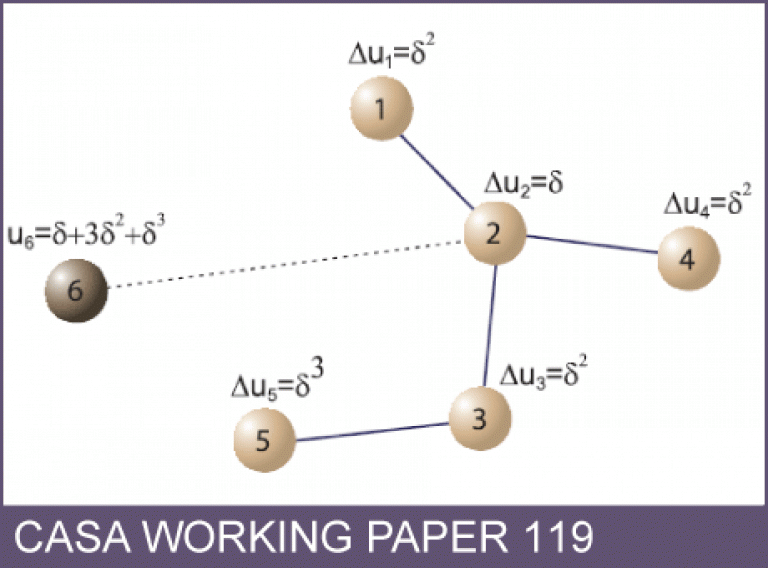CASA Working Paper 119

1 June 2007
Socioeconomic Networks with Long-Range Interactions
In well networked communities, information is often shared informally among an individual's direct and indirect acquaintances. Here we study a modified version of a model previously proposed by Jackson and Wolinsky to account for communicating information and allocating goods in socioeconomic networks.
The model defines a utility function of node i which is a weighted sum of contributions from all nodes accessible from i. First, we show that scale-free networks are more efficient than Poisson networks for the range of average degree typically found in real world networks. We then study an evolving network mechanism where new nodes attach to existing ones preferentially by utility. We find the presence of three regimes: scale-free (rich-get-richer), fit-get-rich, and Poisson degree distribution. The fit-get-rich regime is characterized by a decrease in average path length.
This working paper is available as a PDF. The file size is 782KB.
Authors: Rui Carvalho, Giulia Iori
Publication Date: 1/6/2007
 Close
Close

